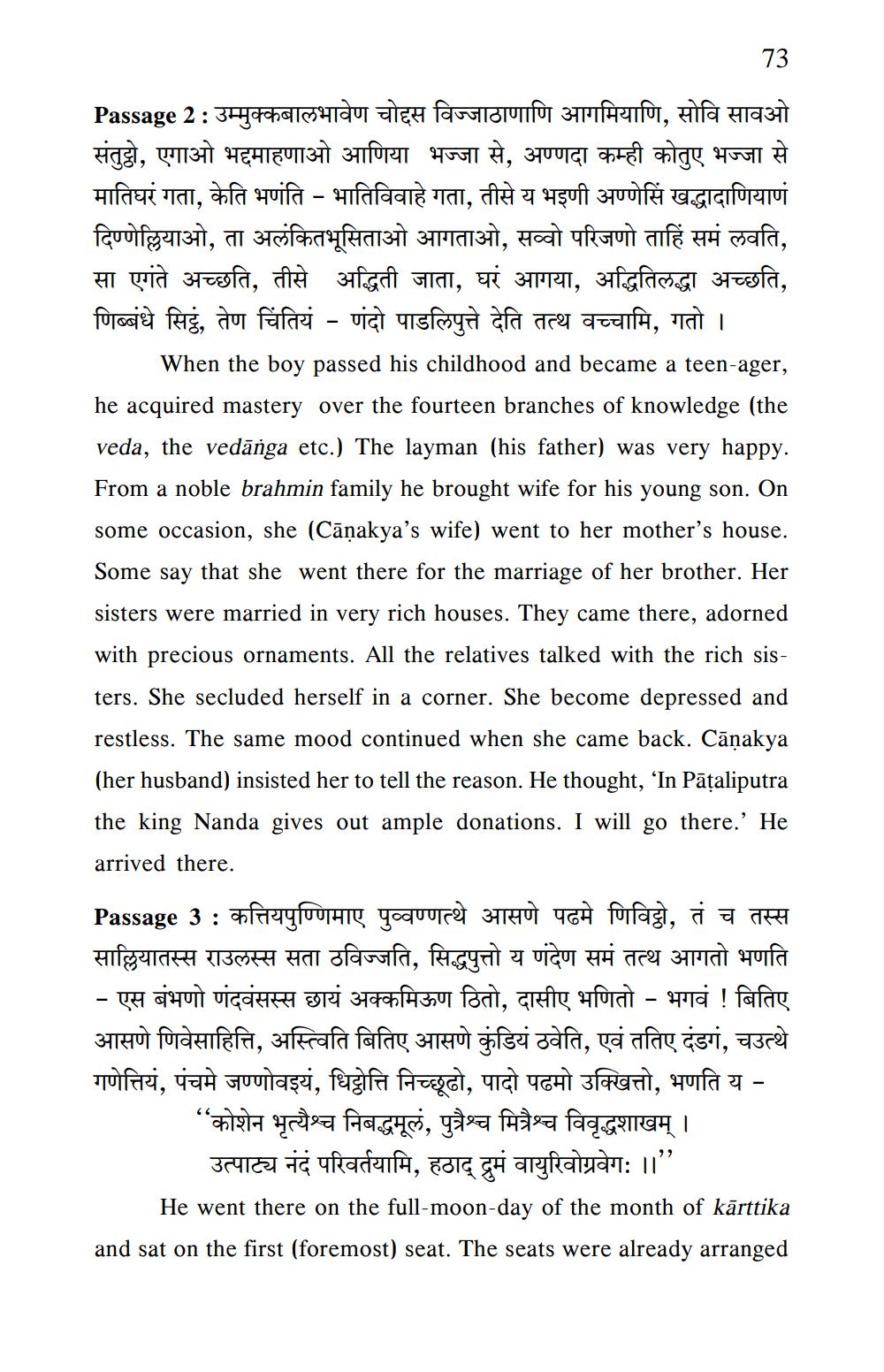________________
73
Passage 2 : उम्मुक्कबालभावेण चोद्दस विज्जाठाणाणि आगमियाणि, सोवि सावओ संतुट्ठो, एगाओ भद्दमाहणाओ आणिया भज्जा से, अण्णदा कम्ही कोतुए भज्जा से मातिघरं गता, केति भणंति - भातिविवाहे गता, तीसे य भइणी अण्णेसिं खद्धादाणियाणं दिण्णेल्लियाओ, ता अलंकितभूसिताओ आगताओ, सव्वो परिजणो ताहिं समं लवति, सा एगंते अच्छति, तीसे अद्धिती जाता, घरं आगया, अद्धितिलद्धा अच्छति, णिब्बंधे सिट्टं, तेण चिंतियं - णंदो पाडलिपुत्ते देति तत्थ वच्चामि, गतो ।
When the boy passed his childhood and became a teen-ager, he acquired mastery over the fourteen branches of knowledge (the veda, the vedanga etc.) The layman (his father) was very happy. From a noble brahmin family he brought wife for his young son. On some occasion, she (Canakya's wife) went to her mother's house. Some say that she went there for the marriage of her brother. Her sisters were married in very rich houses. They came there, adorned with precious ornaments. All the relatives talked with the rich sisters. She secluded herself in a corner. She become depressed and restless. The same mood continued when she came back. Caṇakya (her husband) insisted her to tell the reason. He thought, 'In Pataliputra the king Nanda gives out ample donations. I will go there.' He arrived there.
Passage 3 : कत्तियपुण्णिमाए पुव्वण्णत्थे आसणे पढमे णिविट्ठो, तं च तस्स साल्लियातस्स राउलस्स सता ठविज्जति, सिद्धपुत्तो य णंदेण समं तत्थ आगतो भ
एस बंभणो णंदवंसस्स छायं अक्कमिऊण ठितो, दासीए भणितो - भगवं ! बिति आसणे णिवेसाहित्ति, अस्त्विति बितिए आसणे कुंडियं ठवेति, एवं ततिए दंडगं, चउत्थे गणेत्तियं, पंचमे जण्णोवइयं, धिट्ठोत्ति निच्छूढो, पादो पढमो उक्खित्तो, भणति य “कोशेन भृत्यैश्च निबद्धमूलं, पुत्रैश्च मित्रैश्च विवृद्धशाखम् ।
उत्पाट्य नंदं परिवर्तयामि, हठाद् द्रुमं वायुरिवोग्रवेगः ।। "
He went there on the full-moon-day of the month of kārttika and sat on the first (foremost) seat. The seats were already arranged
-




